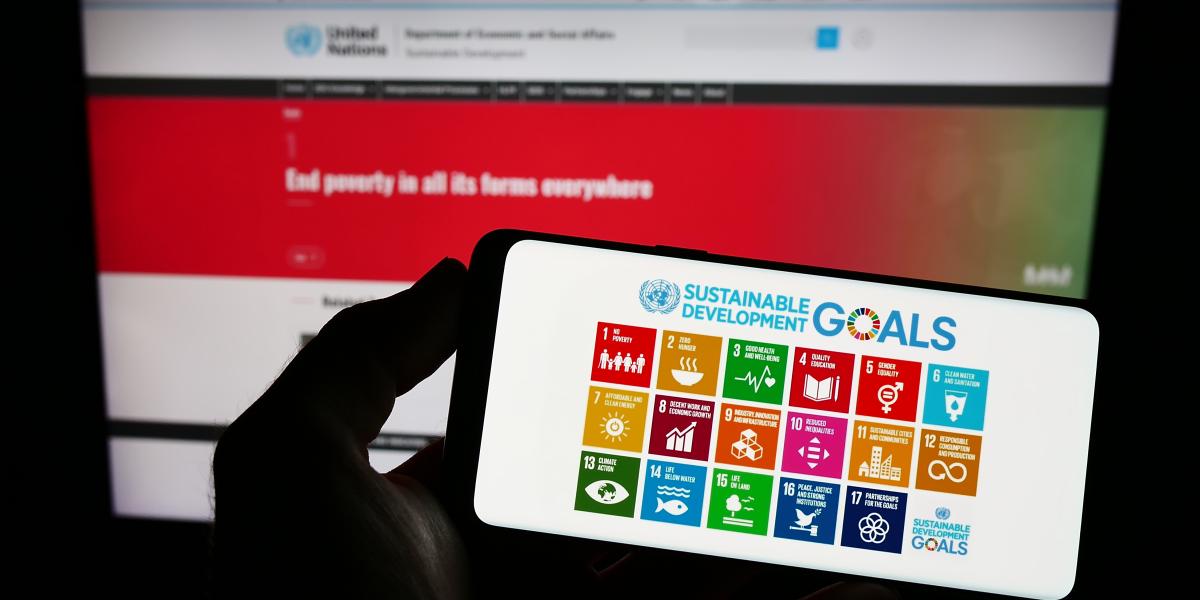You are here

Sustainability, most broadly, is defined by the United Nations Brundtland Commission as “meeting the needs of the present without compromising the ability of future generations to meet their own needs.” At present, there are many guidelines that companies can follow to track their sustainability.
Examples include: the UN Sustainable Development Goals (SDGs), GRI Standards, the U.S. Securities and Exchange Commission Climate-Related Disclosures for investors of public companies and ESG policies/reports that are company specific.
But, if your company manufactures products using a mix of supplier inputs, then you must not only keep track of your own company’s sustainability metrics and performance, but also that of your suppliers...that is, if you want to be truly sustainable.
Critical questions
There are a number of questions that you may need answered by suppliers. One that aligns with basic human rights is “where are my goods coming from?” This correlates with SDG Goal 8: “Promote sustained, inclusive and sustainable economic growth, full and productive employment and decent work for all.”
In the U.S., for instance, certain goods cannot be imported from areas within China under the Uyghur Forced Labor Prevention Act (UFLPA). Thus, if your product contains chemical components made in Uyghur, you will be limited in terms of where you may import and sell your products (not to mention, this raises an ethical duty that could impact brand reputation).
Many questions may arise such as:
- Where do my suppliers manufacture their goods?
- What chemicals do my suppliers use and are they regulated/banned in any jurisdiction?
- Do my suppliers have their own ESG policies?
- What processes are used to make supplier components and how does this affect their employees’ safety (and my employees’ safety)?
Without the process and resources to seek answers from suppliers, you risk promoting products that are unsustainable.
Transparency and Digital Product Passports
If you work in Europe (or import products into EU countries), then you are likely aware of The European Green Deal which is focused on climate change targets. As part of this EU transformation, the Sustainable products initiative requires that companies consider durability, repairability and other factors to make sure that the product lifecycle is considered and arguably extended as a way to avoid waste.
As John Wu, CEO of Novalis aptly states in the case study linked below, “We think Sustainability is a journey not a destination.” So do consumers and stakeholders. Transparency is now expected and Digital Product Passports (DPPs) are a vital tool for companies. There is massive value in tracking information across the supply chain as products move through the natural lifecycle from creation to disposal. By having all information about a product in one place, including compliance information and certification status, your employees, customers and other stakeholders can find information that will help keep them safe and make informed purchasing decisions.
DPPs also allow you to manage your choice of suppliers, which ones you continue to work with and which you decide are incompatible with your overall sustainability approach.
Strategize for Brand Equity
As your product evolves, you can invest in more sustainable alternatives. Whether this means swapping out older chemicals for newer ones, changing formulations to protect employee and consumer health or considering how disposal will impact the environment, there are many forward-thinking strategies that you can implement in the future. By considering factors such as these, you can position yourself as a sustainable company that consumers can trust and improve your brand equity in years to come.
Know how 3E can help you
With 3E ExchangeTM you may house your DPPs in one publicly available place. Any stakeholder can view DPPs for your products and you can avoid scenarios (e.g., bans on importation) that would derail your market value. Using 3E Exchange you can screen your product ingredients and adapt quickly to new regulations.
One of our customers, Novalis, featured 3E Exchange in its Corporate Sustainability Report FY22 (see pages 51-57).
To find out more about how 3E Exchange is a vital tool for Novalis, please read our recent CASE STUDY.

 Top
Top